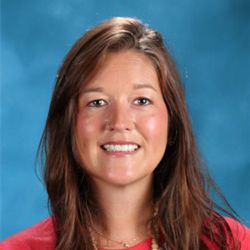
Career and Technology Education
Phone: (240) 740-7265

Taylor-Boone, Ms. Karen D
()Staff

Taylor-Boone, Ms. Karen D
()
Ashley, Mr. Michael A
()
Gerasimowicz, Mr. Ryan S
()
Guzan, Mrs. Denae N
()
Holt, Mr. John T
()
Melmed, Mrs. Lisa M
()
Murley, Mr. Kevin J
()
Parker, Mrs. Arizelle
()
Punhong, Mr. Pongpun
()
Wharton, Mr. Donald E
()Wonodi, Mr. Ezebuola
()
Requirements
Many of these courses satisfy the MCPS graduation requirements for Technology Education, Advanced Technology Education, and the Career Development Program. For an explanation of these and other graduation requirements, please see High School Graduation Requirements, on the MCPS website.
Courses
Accounting
(Grades 10-12; 1 credit) Basic accounting theory, the use of journals and ledgers, and the preparation of financial statements are included. Computerized accounting is introduced. The second semester provides a base for college-level study in the field of accounting and business administration. Students will integrate ethical considerations and basic values into their decision-making process.
Honors Advanced Accounting
(Grades 11-12; 1 credit; Prerequisite: Accounting) Review of basic principles before continuing the study of the adaptation of accounting methods to the needs of specific business types. Spreadsheets and Peachtree accounting software are used to process data. The interpretation and managerial use of records is included.
Child Development 1-3 / Child Development Internship
(All grade; 1 credit each; Completion of all 3 credits of Child Development and the Child Development Internship fulfills the Career Development Program graduation requirement) Students work with children in a variety of settings, supported by the study of child development from prenatal stages, through infancy and early childhood, to Grade 3. Knowledge of physical, intellectual, language, social, and emotional development is applied through planning lessons, teaching, observing, and studying three and four-year olds in the child development laboratory. Students develop competence in creative teaching techniques; developmentally appropriate practice; program management; child behavior and guidance; interpersonal relationships; health, nutrition, and safety standards; child abuse and neglect regulations; special needs of diverse populations; applications of technology; and workplace skills.
AP Computer Science Principles
(Grades 10-12; 1 credit; fulfills the Technology Education requirement) Part of the MSDE-approved 4-credit Program of Studies in Computer Science. Provides an engaging introduction to computing concepts through a nationally-developed curriculum, offered through a unique partnership with Code.org. Focuses on the conceptual ideas of computing so that students understand why tools and languages are used to solve problems through a study of human computer interaction, problem solving, web design, programming, data analysis, and robotics.
Cooperative Work Experience (CWE)
(Grades 11-12; 1 credit) The first semester of the CWE course provides orientation to the world of work including career planning, job search and interview techniques, employee-employer relationships, promotions, evaluations, and termination procedures. Second semester includes consumer information for the working person. Units include personal financial planning, money management, income tax preparation, investing, establishing credit, and purchasing of insurance and housing.
Cooperative Work Experience with On-the-Job Training (CWE with OJT)
(Grades 11-12; credits vary according to class length; 1 credit of CWE combined with 3 credits of OJT fulfill the Career Development Program requirement) Combined with the standard CWE class, this class adds a real world job experience in which students are employed in the local business community in a career-related area. OJT is supervised by the CWE teacher/coordinator; students receive both pay and graduation credit for this experience. Seventy-five hours of concurrent work experience are required for each one-half credit of on-the-job training.
Advanced Design Applications
(Grades 10-12; 1 credit; Prerequisite: Completion of Basic Tech Ed Credit) Standards-based, technological design course provides students the opportunity to build on their existing technological literacy through a deeper understanding of design principles and technologies. Students use design process to solve technological problems.
Entrepreneurship
(Grades 10-12; 1 credit) Dsigned to help students interested in owning their own business develop the competencies necessary to be a successful entrepreneur while examining Entrepreneurship as a rewarding career opportunity. Students develop self-assessment, entrepreneurial; technological, financial, legal, marketing and managerial skills, while being introduced to local, national, and international trends and resources, Students will select an area of entrepreneurial career interest and explore the various aspects of creating, managing, and expanding a business enterprise. Potential venture capital for students are available through the Coleman Foundation Grant.
Foundations of Technology
(All grades; 1 credit; fulfills the Technology Education requirement) Students will explore and develop a deep understanding of the characteristics and scope of technology and the influence on history, along with the relationships and connections between technology and other fields of study. Students will develop an understanding of the attributes of design and develop skills by using the design process to solve technological problems. Students will develop a positive attitude about safety and skills through research, problem solving, testing, and working collaboratively.
Marketing
(Grades 11-12; 1 credit) Students learn the basics of the 4 P’s in marketing: product development, pricing strategies, promotional techniques, and place or distribution options. Students work with business computer simulations, actual case studies, and a variety of hands-on exercises to develop the skills it takes to successfully market a business. Supplemental text books help understand the nature of competition in a capitalistic and global market. Marketing research studies help to identify the best answers to business problems.
Advanced Technological Applications
(Grades 10-12; 1 credit; Prerequisite: Completion of Basic Tech Ed Credit) Standards-based, technological design course provides students the opportunity to build on their existing technological literacy through a deeper understanding of Information and Communication Technologies, Medical Technologies, Agriculture and Related Biotechnologies, and Entertainment and Recreation Technologies. Students work individually and in groups to create ideas, develop innovations,design solutions, fabricate models, and engineer practical design results in a variety of technological problems.
Montgomery Blair High School
51 University Blvd East, Silver Spring, MD 20901-2451
(240) 740-7200
Maryland Tip Line: +1 (833) 632-7233
These pages were created by the Blair Sysops under the supervision of Peter Hammond.
